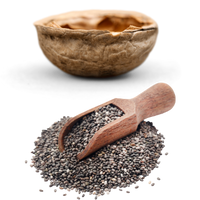Dietary Fat Statistics 2024 | Surprising Facts & Data

When conducting research, we can be misled by our unconscious biases. Many people are programmed to assume that all fats are bad, or that limiting or eliminating them can be good. In fact, many Americans are more focused on fat in their diet than sugar. But as our research shows, fat may not be as harmful as previously thought; and taking it out of our diets may not be as good. For more information on diet and health, please see our Nutrition Statistics main page.
70-75% of adults’ diet is more than 10% saturated fat. [1]
The CDC finds that the average man’s total calories in a day are 35% fat, 36% for women.
In surveys, however, people answer differently, with 47% saying they avoid fat in their diet. [2]
Another figure put the national average at 12% of calorie intake from fat; this amalgamates all intake. [3]
Effects of Fat
Not all fats are created equal, and while many health experts seem to change their opinions over time, the raw numbers are in on many types of fat.
- Higher saturated fat is associated with lower risk of stroke, and;
- Not associated with risk of heart disease. [4]
- An 8 year study saw “no benefits of a low-fat diet”.
- Fat intake, however, is still closely associated with cholesterol, because foods with one generally contain the other:
- Cholesterol is linked to higher mortality (death) rates. [5]
- 32% of adults have high cholesterol. [6]
Despite the controversy of total fat and saturated fat, one common enemy has emerged: trans fats.
Trans fat may consist of as much as 3% of the American diet. And trans fats kill. Among 1,572 deaths in an 18,513 person study: [7]
- Death rates increased with every quintile of trans fat intake.
- 39% increase in type II Diabetes development.
- Increased risk of breast cancer in women.
- And an increased risk of prostate cancer in men.
Conversely to trans fats, Omega-3s have emerged as a potentially huge positive agent in fitness and health:
Adults should consume between 1.1 and 1.6 grams of Omega-3s per day. [8]
Benefits may include:
- Reduced heart attack and stroke. [9]
- Reduced triglycerides.
- Arthritis relief. [10]
Sources of Fat
The most common sources of saturated fat in diets are:
Delis
Burgers / Hot Dogs
Tacos / Burritos
Grilled cheese
Prepared entrees (even with grain as the main ingredient):
Trans fats, the largest risk factor in the Fats category, can be found in:
- Commercial baked goods, such as cakes, cookies and pies
- Shortening
- Microwave popcorn
- Refrigerated dough, such as biscuits and rolls
- Fried foods, including french fries, doughnuts and fried chicken
- Non Dairy coffee creamer
- Stick margarine [11]
Good Sources of Omega-3s: [12]
- Flaxseed oil
- Chia seeds
- Walnuts
- Soybean oil
- Sea Bass
References
People Also Read...
Recent Articles
Sam is a passionate health and fitness enthusiast who has been interested in supplements, fitness, and wellness for over 10 years. He is the founder of Great Green Wall - the health and wellness brand and has completed multiple fitness certificates, including personal training and nutrition certifications. Sam has been working as a personal trainer for the past three years and is dedicated to helping his clients achieve their fitness goals and lead healthier lifestyles. He believes that a healthy lifestyle is crucial to a happy and fulfilling life and is committed to sharing his knowledge and passion with others.



